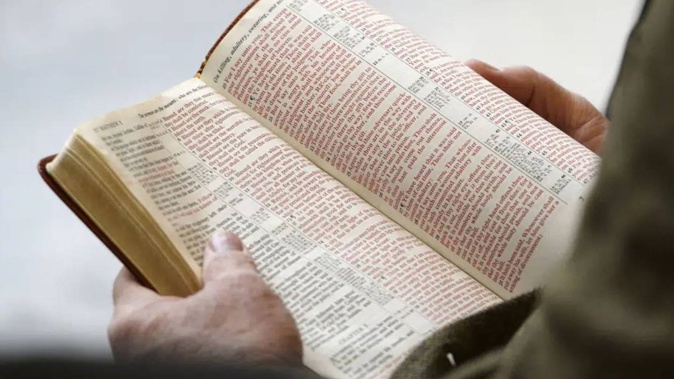
Notable religious and holy texts including the Quran, the Bible and the Torah are proposed to be shredded by the National Library in a move that’s expected to save the Government around $1 million annually.
The library is disposing of more than 500,000 publications from its overseas published collection, including those of religious importance and notable authors including William Shakespeare, Virginia Woolf and Charles Dickens.
The proposal to destroy some books has caused upset among various religious communities, though the library has confirmed it will continue to hold religious texts and international books of importance.
Minister of Internal Affairs Brooke van Velden said the move will be “beneficial” to the taxpayer, with expectations it will trim about $1m in storage costs.
Van Velden also pointed out the notable religious texts were readily available: “I mean you have to go to the top 50 book sales at any Whitcoulls around Christmas and see that you’ve got both texts on there,” when asked about the Bible and Quran.
Church historian and national director of the New Zealand Christian network Reverend Dr Stuart Lange said Christian people greatly valued the Bible, due to its “divine authorship and message”.
Lange said Christians do not like copies of the Bible to be treated with disrespect, but don’t in principle object to appropriately disposing of individual Bibles if they are worn-out or falling apart.
Federation of Islamic Associations of New Zealand (FIANZ) chair Abdur Razzaq said the agency would be approaching the Department of Internal Affairs to see if they could keep books related to their faith in their Wellington-based library.
Razzaq added that while everyone is now focused on online resources, it is important to retain “core knowledge sources”, like the books that are proposed to be disposed of.
Lange expressed concern that the proposed reduction of both religious and other texts had implications for scholarly work and research.
In a statement, a spokesperson for the New Zealand Jewish Council said the destruction of any Jewish book of learning is highly offensive to people of the Jewish faith.
The NZJC suggested there had not been enough consultation with expert Jewish religious leaders, and called for the publications to be kept or donated to local congregations who wish to accept them.
The National Library had agreed to export items to an offshore digitisation base in response to feedback about the loss of books, but paused and later withdrew this due to copyright concerns.
Van Velden said she understood the physical books would be shredded and recycled.
“Ultimately, this is beneficial to New Zealand taxpayers,” she said.
Van Velden added that it had taken the Department of Internal Affairs around seven years to get to this point, and they have ensured they’ve attempted to rehome these books both domestically and internationally.
“It’s not really the role, I wouldn’t have thought, of DIA [the Department of Internal Affairs] or the National Archive to ensure that we hold on to very readily accessible religious texts when we are a secular country,” van Velden said, and clarified she did not expect the latter was a reason why the books were being removed.
National Library digital director Mark Crookston said he was comfortable they had followed a good process in considering how the items removed from the collection are disposed.
Crookston said the process included offering copies to other libraries in New Zealand and overseas, which had “rehomed” about 48,000 items.
“It also followed many years of discussion with various interest groups,” he added.
He reiterated the library’s key responsibility was to focus on New Zealand authors and items published in New Zealand, adding it was not its purpose to maintain comprehensive collections of all notable authors from overseas.
“The National Library of New Zealand continues to hold an internationally significant collection of religious texts, including Quran and Bibles.
“All libraries and publishing houses dispose of their unused lending collections from time to time,” Crookston said.
The full list of texts includes pieces on health, history, politics and religion. It includes books written centuries ago.
In a previous statement, the National Library suggested there had not been significant interest from people potentially wanting to take the books off their hands.
“While 15,000 collection titles have been transferred to other libraries, the experience with donating approximately 50,000 titles to book fairs in 2020 resulted in a modest pick-up from the public, which reinforced the purpose of disposal in the first place,” the library said.
It confirmed most of the titles planned to be disposed of had not been issued for 20 to 30 years.
In 2018, the then Minister of Internal Affairs approved removing items from the library that no longer met the collection’s scope or purpose. Since then, tens of thousands of books have been either retained, donated or moved overseas.
Azaria Howell is a multimedia reporter working from Parliament’s press gallery. She joined NZME in 2022 and became a Newstalk ZB political reporter in late 2024, with a keen interest in public service agency reform and government spending.
Take your Radio, Podcasts and Music with you









